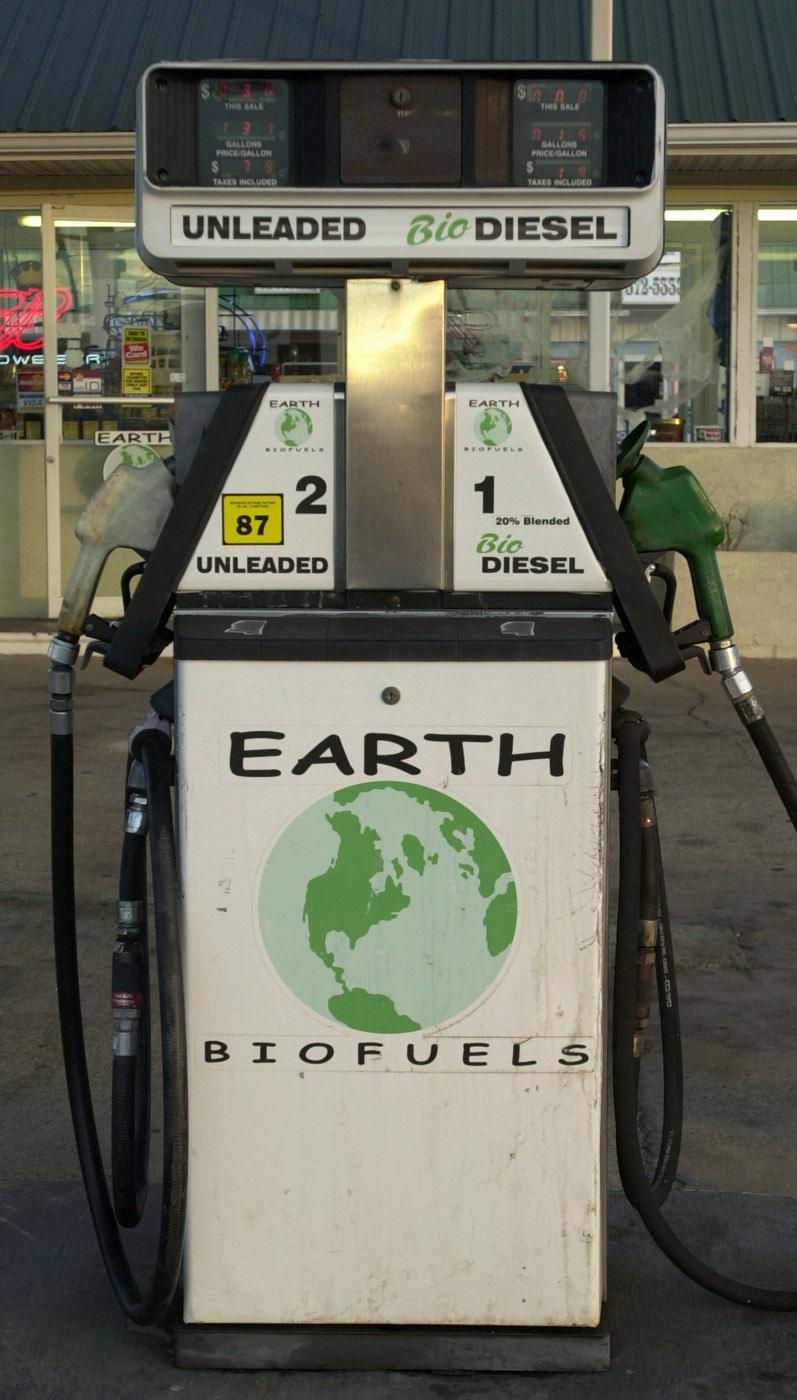Information Possibly Outdated
The information presented on this page was originally released on November 17, 2005. It may not be outdated, but please search our site for more current information. If you plan to quote or reference this information in a publication, please check with the Extension specialist or author before proceeding.
New fuel available at Mississippi pumps
MISSISSIPPI STATE -- Signs of the times are appearing along Mississippi highways. Billboards proclaiming the availability of “soy biodiesel” have appeared in the Jackson area and other locations in the state.
While biodiesel still is not a household word, it is more widely recognized than it was just a year ago when the fuel was available to commercial customers at just a handful of Mississippi outlets.
Biodiesel is a blend of petroleum diesel and a derivative of vegetable oil. Soybean oil is the vegetable oil feedstock most commonly used in biodiesel, and the increased availability of soy biodiesel is good news for Mississippi soybean producers.
“If every trucker switched to a B2 soy biodiesel blend, it would increase use of soybeans by 474 million bushels a year,” said Jerry Slocum, a soybean producer and member of the Mississippi Soybean Promotion Board. “Use of the same blend in all diesel-powered farm equipment would consume an additional 51 million bushels.”
Soy biodiesel blends are referred to by the letter B followed by a number that represents the percentage of soy biodiesel used. For example, a B2 blend contains 2 percent soy biodiesel.
“Producer support for research and development of soy biodiesel began in 1992,” Slocum said. “That support will pay off for producers in increased demand for their product and for the nation in decreased demand for foreign oil.”
Tax incentives for processors in the 2005 federal energy bill have helped make biodiesel more competitive with pure petroleum diesel. Another reason for increased interest in biodiesel is an Environmental Protection Agency mandate calling for the removal of sulfur from petroleum diesel beginning in 2007.
“The removal of sulfur is going to be great for the environment in terms of eliminating pollutants, but it will cause problems for diesel engines because sulfur helps lubricate the fuel pump and the engine itself,” said Mississippi State University agricultural engineer Herb Wilcutt. “Something will have to be added to diesel to restore the lubrication lost by removing the sulfur.”
Soy biodiesel has the qualities needed to provide the necessary lubrication.
“Adding just a 2 percent blend of soy biodiesel to the fuel will enhance lubrication to above where it is with conventional petroleum diesel today,” Wilcutt said.
When biodiesel first came on the scene about 10 years ago, the group most reluctant to accept it were the ones who might benefit the most from its widespread use -- farmers. Their concern was that using anything other than petroleum diesel might harm engines or void manufacturers warranties.
“Several years ago, we approved the use of a B5, or up to a 5 percent concentration level of a bio-component in our diesel fuel,” said John Deere Corp. spokesman Barry Nelson. “You can use that in our John Deere Power Tec engines with no effect on warranty.”
Deere recently carried its endorsement of biodiesel a step further.
“Now we also have approved a factory fuel-fill of B2 or 2 percent biodiesel fuel,” Nelson said. “Every tractor, every combine that leaves the factory now has this biodiesel fuel in it.”
For about two years, Mississippi farmers and other commercial customers have been able to buy soy biodiesel from a few suppliers in the state, but it was not available at retail pumps until January 2005, when Earth Biofuels Inc. opened a service station selling B20 biodiesel in Byram, a Jackson suburb.
“The average person probably isn't that familiar with biodiesel,” said Bill Carpenter, chief financial officer for Earth Biofuels. “We opened this facility as a vehicle to introduce the product to the general public.”
Biodiesel prices, Carpenter added, have been running a penny or two below petroleum diesel prices recently, and his company, which operates a manufacturing facility in Meridian, has not been able to keep up with demand.
“We're upgrading the facility in Meridian and plan to open a second one in Oklahoma,” he said.
Other suppliers also began providing biodiesel to retail outlets during the past year, including Dickerson Petroleum in Kosciusko, which is supplying stations in Kosciusko, the Jackson area and Meridian.
“There have been a lot of questions to answer for customers about biodiesel, and it does take some extra handling because it has to be blended,” said owner Kirk Dickerson. “I'm running it in my truck, and I've noticed the engine runs quieter with the biodiesel.”
Biodiesel capacity has been on a steady increase. The United Soybean Board estimates the 2005 production of the nation's 35 soy biodiesel plants at 50 million gallons of pure soy diesel, and the total is expected to double as more plants come online in 2006.
“With production capacity on the increase, we hope to see it become more readily available to truckers and the general public,” said Morgan Beckham, chairman of the Mississippi Soybean Promotion Board. “The ideal situation will be to have biodiesel at the pump in B2, B5 and B20 blends.”





